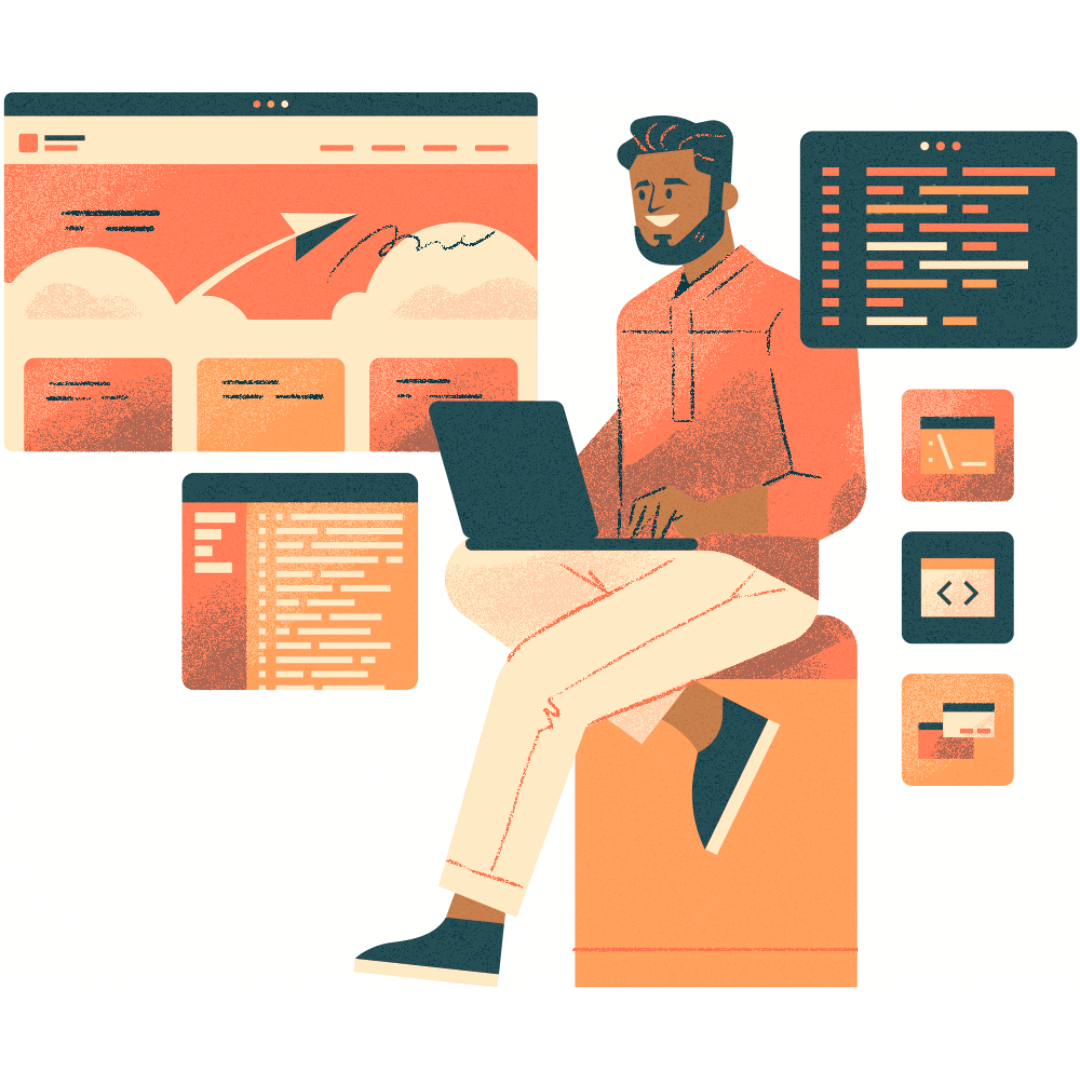Achieving success in the ever-changing field of web development requires staying ahead of trends. As 2024 approaches, the field of web development is still developing quickly due to both shifting user expectations and technology breakthroughs. Anticipating emerging trends and making necessary adjustments are essential for properly navigating this always shifting environment.
The Significance of Forecasts for Web Development
Web development forecasts are crucial in determining how online experiences will develop in the future as the digital world grows more and more important to both users and enterprises. Developers and designers should proactively adjust their tactics to suit changing expectations by keeping up with emerging trends. This will ensure optimal performance, improved accessibility, and more user engagement. These forecasts work as a guide for innovators, pointing experts in the direction of significant fixes and helping them stay relevant in a cutthroat market.
The top 12 web development and web design predictions for 2024
1. Using AI in Web Development
The use of AI in web development has the potential to completely change how websites are created and run. Artificial intelligence will improve efficiency, simplify procedures, and create more user-friendly interfaces through the use of chatbots that are intelligent and can provide personalised user experiences, AI-powered content creation, and dynamic website optimisation.
2. PWAs, or progressive web applications
In 2024, PWAs will still be popular since they give users the reach and accessibility of a web application along with the smooth experience of a native mobile app. PWAs are poised to change user expectations and obfuscate the distinctions between standard websites and mobile applications with features like push notifications, offline capabilities, and quick loading times.
3. Voice Search Indexing
The need for voice search optimisation in web development has increased due to the widespread use of voice-activated devices. As more people rely on voice commands to access information and services, websites that are optimised for voice search algorithms will see an increase in visibility and engagement. Natural language processing and conversational interfaces will be essential tactics for addressing this trend.
4. Virtual reality (VR) and augmented reality (AR)
The immersive and interactive content that AR and VR technologies offer has the potential to revolutionise online experiences. The combination of AR and VR will increase user engagement and give people unmatched immersive experiences right within their browsers, from gamified interfaces and virtual buying experiences to virtual product demos and tours.
5. The Evolution of Responsive Web Design
The evolution of responsive web design will continue to take into account a wider range of devices and screen sizes. In order to ensure smooth user experiences across all platforms, developers will need to give flexibility and scalability top priority in their design methods as foldable smartphones, wearable technology, and Internet of Things gadgets proliferate.
6. Integration of Blockchain
Web development will make greater use of blockchain technology, especially in areas like content authentication, safe online transactions, and decentralised identity verification. Websites may improve user control over their digital assets and data, reduce fraud, and foster trust by utilising blockchain’s built-in security and transparency.
7. Cybersecurity Protocols
In 2024, web developers will still place a high premium on cybersecurity due to the increasing threat of cyberattacks and data breaches. In an increasingly linked digital ecosystem, putting strong security procedures, encryption methods, and multi-factor authentication systems in place will be essential to protecting sensitive data and thwarting new attacks.
8. Eco-Friendly Website Design
The growing awareness of environmental issues will make sustainability a crucial factor in online design. Developers will be essential in promoting eco-friendly web experiences that minimise resource consumption and environmental impact, from improving website performance to lowering carbon footprint through effective hosting methods and clean coding techniques.
9. Principles of User-Centric Design
Web development innovation will be propelled by user-centric design principles, which prioritise accessibility, diversity, and user experience. Designing user-friendly interfaces, giving content readability a priority, and streamlining navigation will be crucial to building captivating online experiences that satisfy a wide range of user requirements and tastes.
10. UI and Microinteractions in Motion
Web experiences will be enhanced by motion UI and microinteractions, which bring smooth animations, interactive elements, and transitions. These design features, which range from understated hover effects to dynamic feedback mechanisms, improve audience engagement, communicate information clearly, and produce unforgettable user experiences.
11. IoT Technology Integration
Web development will continue to be influenced by the Internet of Things (IoT), which will allow for smooth communication between websites and smart gadgets. Numerous opportunities arise when IoT technologies are integrated into web applications, ranging from remote device management and real-time data tracking to customised user experiences based on unique preferences and behaviour patterns.
12. Compliance and Data Privacy
For web developers, maintaining compliance and protecting user privacy will be crucial in an era of strict data privacy laws like the CCPA and GDPR. Building trust and upholding regulatory compliance in the digital sphere will require adopting privacy-by-design principles, putting in place strong data protection safeguards, and offering clear permission methods.
Conclusion
The web development landscape is expected to be marked by innovation, evolution, and adaption to evolving trends as we move forward into 2024. Developers and designers can place themselves at the forefront of industry trends and provide innovative web experiences that attract consumers and propel business success by adopting these forecasts and proactively incorporating them into their strategy. What additional forecasts do you think will influence the future of web development? Share your thoughts in the comments below!





